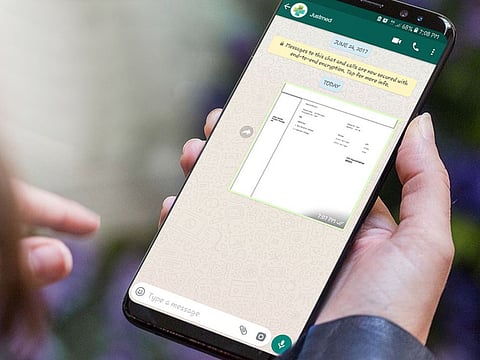Beware of dodgy WhatsApp health tips!
Some of the advice is not just crazy but downright dangerous

‘Take one teaspoonful of ‘X’, mix with two teaspoons of ‘Y’ and a large pinch of ‘Z’. Add two litres of water and boil until reduced by half. Cool, strain and keep in a glass jar in your fridge. Take one tablespoon every morning on an empty stomach.”
Sounds familiar? The ‘X’, ‘Y’ and ‘Z’ may be ingredients from your kitchen cupboard or exotic seeds or weeds you buy from a health food store. And the concoction you brew may be a cure for diabetes, heart ailments, cancers or a host of other diseases, or else may just be for plain old good health.
These and similar medical tips reach us every day. The culprit? Our Whats-App messenger service. Never has it been easier to forward stuff, both serious and trivial, as it is nowadays. We seem to be inundated with good health tips, ranging from the safe or sensible to the downright crazy. Many of these tips are based on alternative healing practices, grandma’s recipes or folk medicine.
Among the more popular tips are cures for joint aches and knee pains, usually based on acupressure points or on the traditional Chinese system of qigong. They often come with a video attachment, a how-to demo. These exercises appear so easy and simple that those of us with musculoskeletal problems are tempted to try them. (And judging by the crowds of people waiting to see the orthopaedist, I’d say quite a few!) If you are a diabetic, woe betide you! Diabetics seem to be at the receiving end of all types of cures, both sensible and stupid. Every other day, there’s a solution, always claiming to be the latest breakthrough. Whether it’s drinking bowlfuls of olive oil or downing bitter concoctions, insulin-resistant patients especially seem to be the worst victims of unsolicited and unfounded advice
Bizarre prescription
Now most of us just read these tips and promptly forget them. The more gullible among us may follow some of these tips for a few days before abandoning them. For the most part, even if they don’t cure you of your illness, they do no harm either.
However, some of the advice is not just crazy but downright dangerous. These usually are sent as “recent scientific breakthroughs” endorsed by a fictitious doctor, or, worse still, a famous clinic. Like this bizarre one which was sent to me recently: it described how a 75-year-old allopathic doctor faced a problem common to the elderly of not being able to empty his bladder.
The rather chatty message went on to describe how the old doc became very uncomfortable as pressure was building up, and in desperation he called up a urologist friend. The friend was in another town so could not come to his immediate rescue, but gave him a simple solution.
He advised him to jump vigorously and “while jumping lift both your hands as though you are plucking mangoes from a tree.” Although the old doc was a little sceptical, (or so the message goes), he followed the instructions, and to his great joy, after five or six jumps, he found he could urinate!
Now, even to a layman, this just doesn’t seem right. First, how can a 75-year-old man jump vigorously? And any urologist will tell you that the advice is totally absurd as when the bladder is distended it is impossible to initiate urination!
Of course, this is not to deny that a few messages are genuine, but most of them should be taken with a very large pinch of salt. However, we all do succumb to the easy allure of these tips, a seemingly quick-and-easy fix for chronic problems. So, if you see your neighbour vigorously swinging his arms every morning (traditional Chinese cure to keep all diseases at bay) or if a family member insists on downing a strange concoction, you’ll know they are victims of these messages. But as a caveat, I’d add, before embarking on a WhatsApp cure please consult your medical practitioner.
Padmini B. Sankar is a Dubai-based freelance writer.



